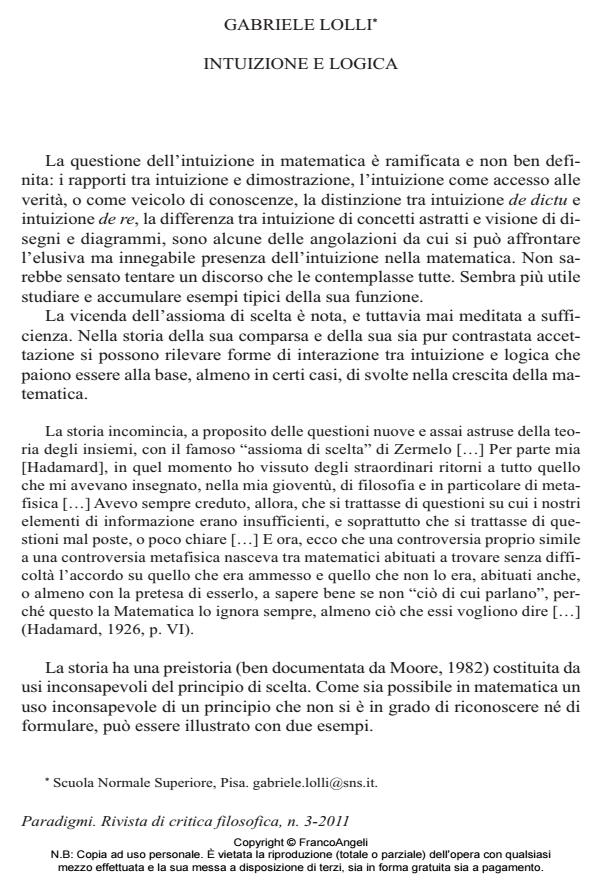Intuition and Logic
Journal title PARADIGMI
Author/s Gabriele Lolli
Publishing Year 2011 Issue 2011/3 Language Italian
Pages 13 P. 45-57 File size 523 KB
DOI 10.3280/PARA2011-003004
DOI is like a bar code for intellectual property: to have more infomation
click here
Below, you can see the article first page
If you want to buy this article in PDF format, you can do it, following the instructions to buy download credits

FrancoAngeli is member of Publishers International Linking Association, Inc (PILA), a not-for-profit association which run the CrossRef service enabling links to and from online scholarly content.
The early twentieth century discussions on the principle of choice and related arguments, especially those around Zermelo’s 1904 proof of the well-ordering theorem, make an interesting example of the relationship of intuition and logic in the growth of mathematics. There are two opposed views confronting themselves: mathematics as a human construction, where constraints are determined by the supposed limitations of the effective capabilities, even if idealized, of the subjects; and mathematics as an objective reality. But in the case of the infinite process of choices, there is a paradox: those insisting on the human construction conception are wary of intuition, in so far as it tends to push the process beyond effective feasibility, while Zermelo with his logical formulation of the principle is the one willing to recognize the soundness of the original pre-mathematical intuition.
Keywords: Choice principle, Construction, Intuition, Logic, Objectivity
Gabriele Lolli, Intuizione e logica in "PARADIGMI" 3/2011, pp 45-57, DOI: 10.3280/PARA2011-003004